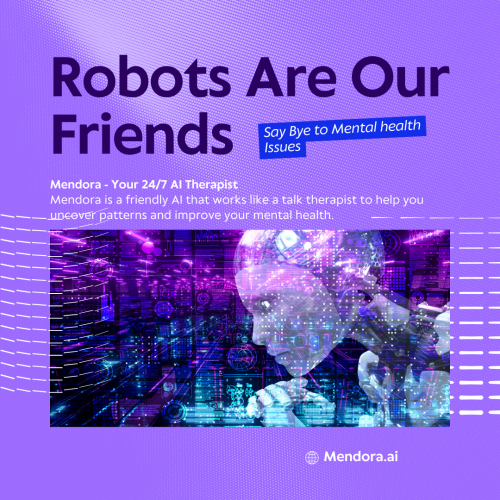In the realm of mental health, the impact of trauma can be profound and enduring. Post-Traumatic Stress Disorder (PTSD) is a condition that can affect individuals who have experienced or witnessed traumatic events, leaving lasting emotional scars. However, amidst the struggles, there is hope in the form of therapy, and in today's digital age, innovative approaches like AI therapists and mental health chatbots are revolutionizing the way we address PTSD and other mental health concerns.
**Understanding PTSD:**
PTSD is not merely a condition of the mind; it infiltrates every aspect of one's life, from relationships to daily functioning. Flashbacks, nightmares, hypervigilance, and emotional numbness are just a few of the symptoms that can plague individuals with PTSD, making it challenging to navigate through life without constant distress. However, it's crucial to recognize that PTSD is a treatable condition, and seeking help is the first step toward healing.
**The Evolution of Therapy:**
Traditional therapy has long been the cornerstone of PTSD treatment, offering a safe space for individuals to process their experiences, explore coping mechanisms, and gradually work towards recovery. However, the rise of technology has expanded the therapeutic landscape, ushering in a new era of accessibility and convenience.
**AI Therapists and Mental Health Chatbots:**
Enter the era of AI therapists and mental health chatbots. These innovative tools leverage artificial intelligence to provide on-demand support and guidance to individuals struggling with PTSD and other mental health issues. With features such as 24/7 availability, anonymity, and personalized interventions, AI therapists are breaking down barriers to treatment and reaching individuals who might otherwise hesitate to seek help.
**The Role of AI in Healing:**
AI therapists offer a unique blend of empathy, expertise, and accessibility. Through natural language processing and machine learning algorithms, these virtual companions can engage in meaningful conversations, provide psychoeducation, and offer evidence-based interventions tailored to the individual's needs. Moreover, the anonymity of interacting with an AI therapist can alleviate the fear of judgment or stigma, encouraging individuals to open up about their experiences and seek the support they deserve.
**The Rise of Mental Health Chatbots:**
In addition to AI therapists, mental health chatbots are gaining popularity as a convenient and cost-effective resource for managing PTSD and promoting emotional well-being. These AI-powered companions simulate human-like interactions through text or voice-based platforms, offering a non-judgmental space for individuals to express themselves, practice coping skills, and access psychoeducational resources.
**AI for Personal Growth:**
Beyond addressing immediate mental health concerns, AI therapists and mental health chatbots also play a pivotal role in fostering personal growth and resilience. By tracking progress, offering insights, and delivering personalized interventions, these digital companions empower individuals to take charge of their mental health journey and cultivate positive habits that contribute to long-term well-being.
**Conclusion:**
In the quest for healing from trauma, therapy remains a cornerstone of treatment for PTSD. However, the landscape of therapy is evolving, with AI therapists and mental health chatbots offering new avenues for support and intervention. By harnessing the power of artificial intelligence, we can bridge the gap in access to mental health care, empower individuals to seek help without fear or shame, and pave the way for a future where healing from trauma is not only possible but also more accessible than ever before. As we embrace the potential of AI in mental health care, let us remember that the most crucial element of healing is the human connection – whether it's with a therapist, a friend, or a virtual companion, the journey toward recovery begins with reaching out for support.


